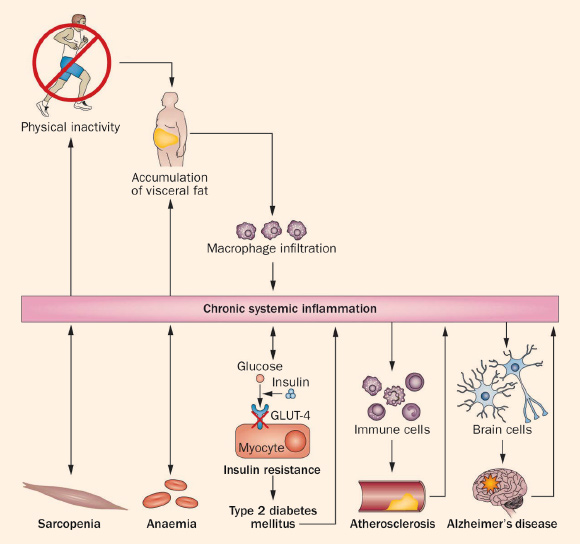Regular physical activity represents a natural, strong anti-inflammatory strategy and should be integrated in the management of patients with cardiometabolic diseases, according to a review of previous studies by Bente Klarlund Pedersen, a clinical professor at the University of Copenhagen, Denmark.

According to the new review, physical activity has strong anti-inflammatory properties. Image credit: Skeeze.
The new findings, published in the European Journal of Clinical Investigation, are significant because persistent inflammation is involved in the development and progression of chronic diseases such as type 2 diabetes and cardiovascular disease.
“The aim of the review was to provide the reader with an update of the mechanisms whereby exercise-induced cytokines may impact cardiometabolic diseases,” Professor Klarlund Pedersen explained.
The researcher found that regular physical activity decreases the risk of type 2 diabetes and cardiovascular disease and contributes to limit the progression of these diseases.

Chronic systemic inflammation predisposes to insulin resistance, dyslipidaemia, endothelial dysfunction, accelerated atherosclerosis, neurodegeneration, anemia and muscle waste, which may contribute to disability and decreased physical activity. Lack of physical activity will provoke accumulation of visceral fat and thereby further enhance inflammation and the onset of metabolic disorders, atherosclerosis and the development of a network of chronic diseases. A vicious circle of chronic inflammation in inflammatory rheumatic diseases, in which the state of chronic inflammation is accompanied by anemia, tiredness and muscle waste which together with other comorbidities and the disease-specific symptoms will lead to further deconditioning and a worsening of the chronic inflammation, which again will negatively affect cardiovascular performance and physical activity in a positive feedback loop. Image credit: Bente Klarlund Pedersen, doi: 10.1111/eci.12781.
“Mechanistic studies in humans suggest that moderate acute elevations in IL-6 and IL-10, as provoked by exercise, exert direct anti-inflammatory effects by an inhibition of TNF-α and by stimulating IL-1ra, thereby limiting IL-1β signaling,” he said.
“In addition, IL-6 has a direct impact on glucose and lipid metabolism.”
“Moreover, indirect anti-inflammatory effects of long-term exercise may be mediated via limiting abdominal adiposity.”
“Physical activity represents a natural, strong anti-inflammatory and metabolism-improving strategy with minor side effects and should be integrated in the management of patients with chronic diseases such as type 2 diabetes and cardiovascular disease,” Professor Klarlund Pedersen concluded.
_____
Bente Klarlund Pedersen. Anti-inflammatory effects of exercise: role in diabetes and cardiovascular disease. European Journal of Clinical Investigation, published online July 19, 2017; doi: 10.1111/eci.12781







